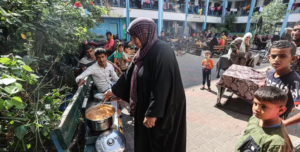
A tide of humanity has washed into Khan Younis.
Hundreds of thousands of individuals have migrated to this location from the northern region, utilizing any means of transportation available to them, including cars, horses and carts, and even their own feet if necessary.
Upon arrival, they discovered a city that was ill-equipped to handle a population that had doubled overnight. Every room, alley, and street is now filled with men, women, and children, with no other place to go.
According to Hamas, 400,000 of the 1.1 million individuals residing in northern Gaza have traveled south down the Salah al-Din Road in the past 48 hours, following Israel’s evacuation order.
My family and I were among them, carrying two days’ worth of food. For many, the threat of Israel’s bombs and impending invasion, which was prompted by Gaza gunmen killing 1,300 Israelis, outweighs Hamas’s directive to remain in place.
However, in this narrow strip of land, which is blockaded on all sides and cut off from the rest of the world, options for relocation are limited, and safety is never guaranteed.
As a result, a large group of Gazans, many of whom have already been displaced from their homes due to bombings, have converged here, all lost, afraid, and uncertain about what the future holds.
This city, which typically houses 400,000 people, has now swelled to over a million overnight, with individuals arriving from both the north and the east, which suffered greatly during the 2014 war.
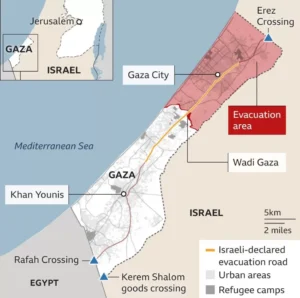
Things fall apart
Scarce resources are depleting rapidly in this city that was already depleted. The strong tide has caused things to start falling apart.
The primary hospital, which was already low on essentials, has now become a refuge for sick and injured individuals from the north.
The corridors are lined with refugees as doctors work tirelessly to treat new arrivals who have been injured by Israeli bombs. The air is filled with the din of competing voices. It is understandable why people are seeking refuge here. Hospitals are among the safest places to be during times of war, as they are protected by international law.
By some measures, these individuals are perhaps the fortunate ones, at least for the time being. Doctors report that they have almost nothing to offer the stream of new casualties, with water being rationed to 300ml per day for patients, and refugees receiving nothing.
Elsewhere, residents are taking in new arrivals. Many individuals in Khan Younis already lived in cramped conditions, and now they are living in even closer quarters. I have witnessed small apartments, which were already overcrowded, becoming “homes” for 50 or 60 people.
This is not a sustainable living situation. My family now shares a home with four others in a flat with two small bedrooms. We are fortunate to have a few meters of personal space.
More on Israel Gaza war
- Please join us for a live coverage of the most recent updates.
- Provided below is an in-depth analysis of the ongoing situation in Gaza and Israel, along with an explanation of the current circumstances.
- Delve into the historical context of the Israel-Palestinian conflict, gaining a comprehensive understanding of its origins and complexities.
- Explore detailed maps depicting the daily realities of life in the Gaza Strip, shedding light on the conditions faced by its inhabitants.
- Discover the compassionate efforts of volunteers who are working tirelessly to ensure that the deceased are treated with the utmost respect amidst Hamas’ attacks on Israel.
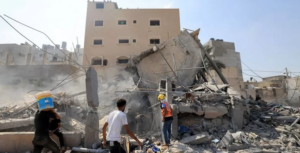
Schools throughout the city, which are fortunately not affected by the ongoing conflict, are currently accommodating a vast number of families, potentially numbering in the tens of thousands, although an exact figure is difficult to ascertain due to the sheer volume.
At one such school, which is managed by the United Nations Relief and Works Agency (UNRWA), every classroom is occupied, and the balconies are adorned with clotheslines.
In the courtyard, mothers and grandmothers prepare meals on park benches while their hungry children eagerly await their sustenance.
However, when the available space is exhausted, which is currently the case, the overflow of humanity inevitably spills out onto the streets, filling the alleyways and underpasses, and living and sleeping in the dirt, dust, and rubble, with the hope of something better that may never materialize.
The situation is catastrophic, with limited access to food, fuel, and water, which is not available in stores, and the only hope is to rely on water stations.
Furthermore, the city is not immune to harm, as it is regularly subjected to bombings, and it remains a warzone. The streets are littered with collapsed buildings and rubble.
I have personally heard rocket launches emanating from near the hospital, as Hamas continues to strike inside Israel, which is an open invitation for retaliation. The hum of Israeli drones searching for their next target is a constant presence.
This morning, a bomb detonated in close proximity to my family’s residence. Due to the severe disruption of telephone services, it took me approximately 20 minutes to establish contact with my son.
The current situation in Gaza is untenable, and the impending invasion only exacerbates the issue. As a journalist who has covered four wars in this region, I have never witnessed such dire circumstances.
While previous conflicts were undoubtedly devastating, the current situation has resulted in starvation and dehydration, which were previously unheard of in this area.
Unfortunately, the only viable exit from Gaza, the Rafah crossing into Egypt, remains closed. The Egyptian government is aware that opening the crossing would result in a humanitarian crisis.
Presently, there are one million Gazan refugees located 20km from Rafah, and once the crossing is opened, chaos will ensue.
In 2014, thousands attempted to flee the war, and this time, the situation will be much worse. Egypt fears that the influx of refugees will result in catastrophe and chaos.





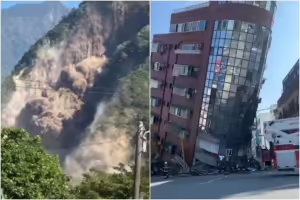


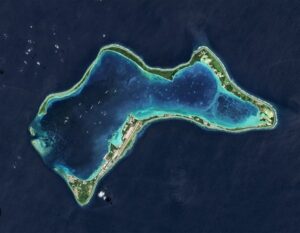





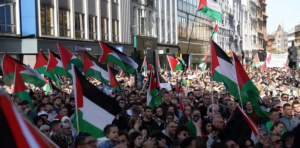
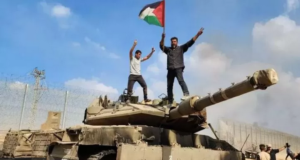

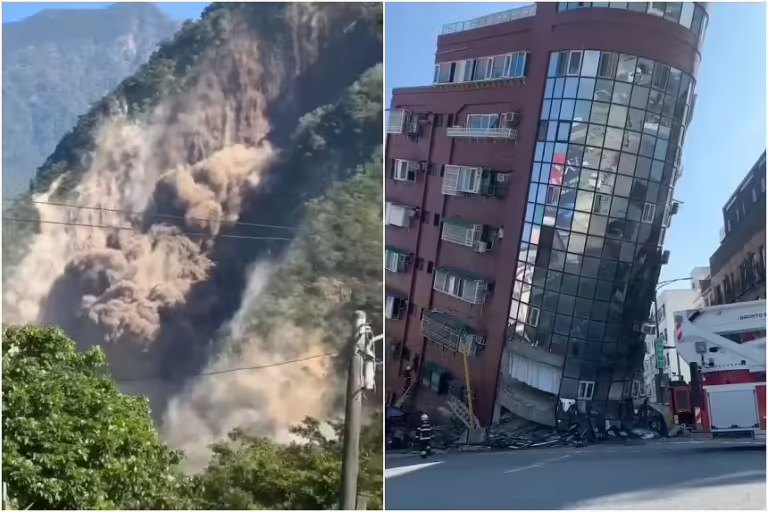
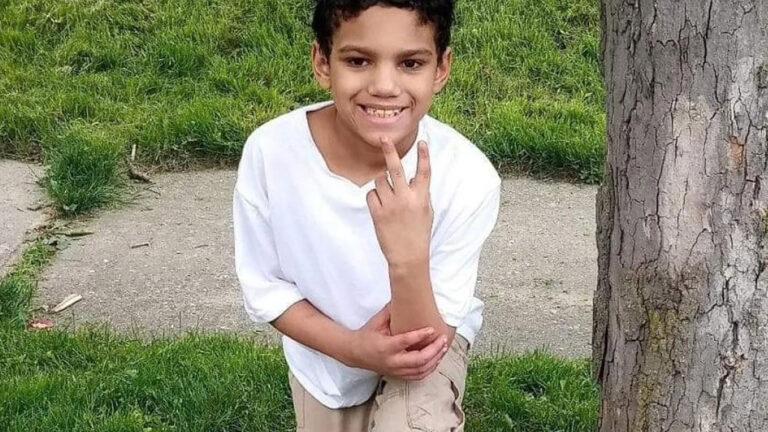

+ There are no comments
Add yours